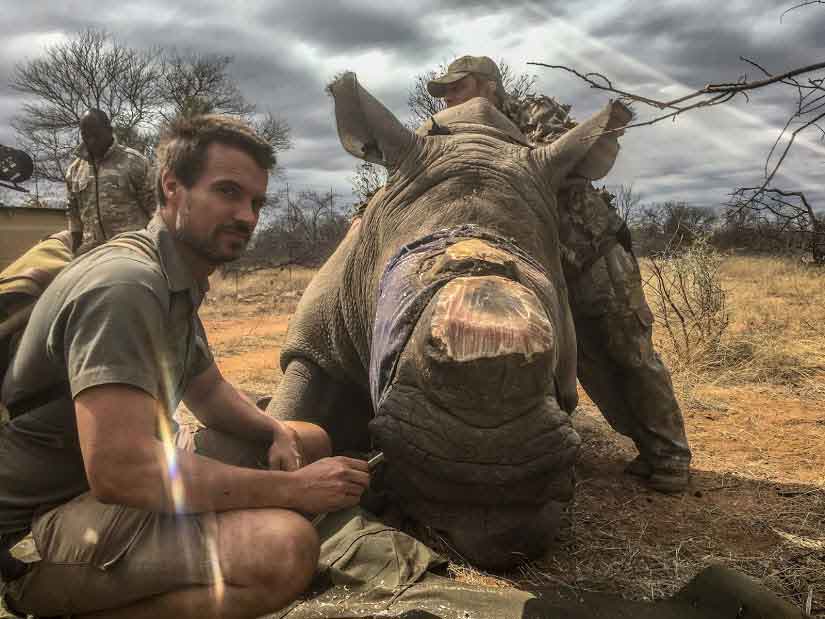OSCAR NKALA
The Limpopo-Lipadi Private Game and Wilderness Reserve has de-horned its black rhinos to discourage poaching in the face of rising demand for ivory and ever-escalating anti-poaching costs.
In an interview with the Botswana Gazette, property manager Kevin MacFarlane said the exercise began early in October following a recent government decision to permit private ranches to de-horn rhinos.
“The process of (de-horning) has already begun, with the Limpopo-Lipadi Game Reserve being the first to dehorn its rhinos last week.
The horns were removed under the supervision of the Botswana Defence Force, the Department of Wildlife and National Parks anti-poaching unit, the Directorate of Intelligence and Security (DIS) and the reserve’s own anti-poaching unit. The horns were immediately handed over to the government custody for safekeeping,” MacFarlane said.
He hailed the recent government decision to permit private ranches to de-horn rhinos as ‘great news’ that allowed privately-owned ranches to breed and conserve the animals without risking attack by poachers.
MacFarlane said rhino poaching has already taken root in Botswana, with the reserve losing two of the six rhinos killed by poachers so far this year. Three others were killed in a private ranch while one was killed in the wild inside the NG23 zone of the Okavango Delta.
Although the poaching threat persists, the Limpopo-Lipadi game reserve is now secured by the Botswana Defence Force (BDF), which has established a camp to cover the property and nearby high-risk poaching zones.
MacFarlane said most private game sanctuaries are not interested in breeding rhinos for trophy hunting or horn sales because in Botswana, all trophies belong to the State. In the last two years, private game reserves were unable to fund anti-poaching operations due to a government ban on game exports.
“For the last two years, the policy in Botswana to block the export of game hurt the wildlife export industry and stifled the ability of reserves to pay for anti-poaching, but the administration has recently lifted the ban, issuing several permits for game animals export. It is not clear whether they will issue permits to import more rhino to private ranches – these too have been denied over the last two years,”
MacFarlane said the next step in Botswana’s rhino conservation drive would be to allow private ranches to import and de-horn more animals in order to continue to breed and support species conservation. He said private ranches have a huge role to play in helping the country achieve the rhino conservation goal.
The manager said Botswana can still bank on its low corruptibility to keep out poachers, since poaching requires some level of support from corrupt officials to pass information and facilitate the export of trafficked wildlife products.
Botswana started importing rhinos from neighbouring South Africa and Zimbabwe in 2 000. Although more are expected in terms of agreements already signed, deliveries have stalled in the past two years. To date, Botswana’s private game sanctuaries have more rhinos than the free-roaming public game reserves.

